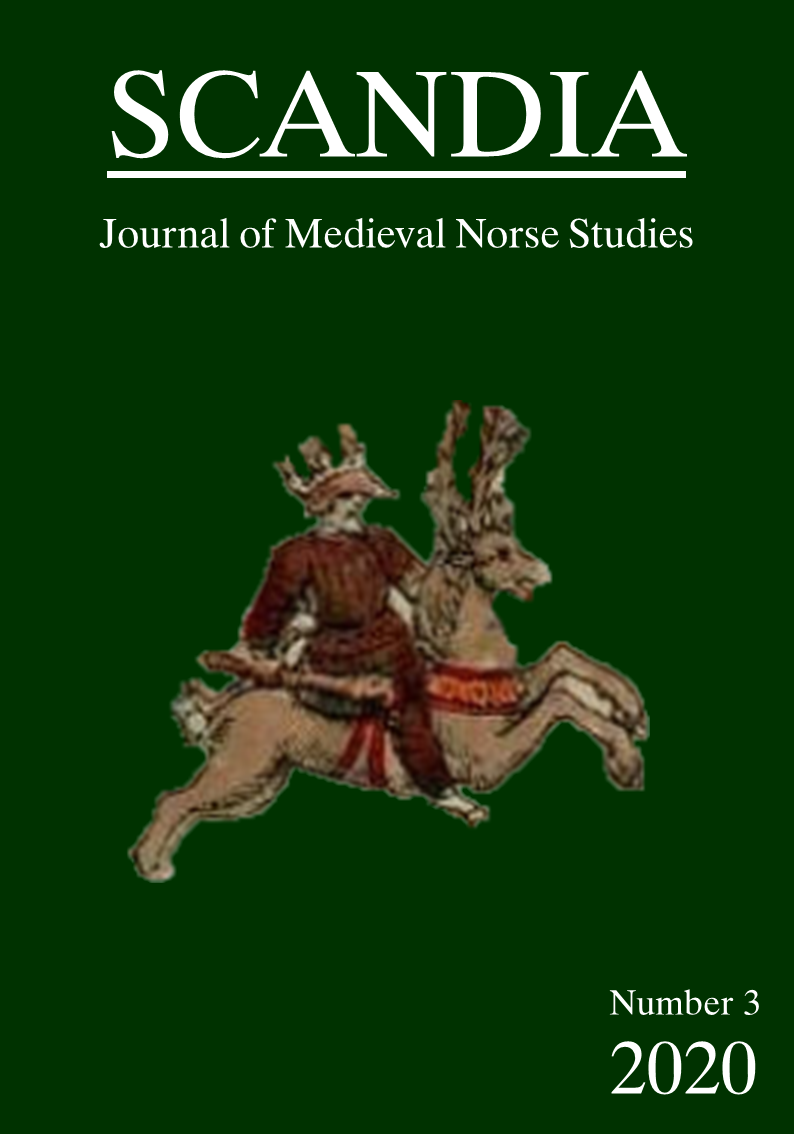SAGAS FOR SUSTAINABILITY? COMMONS, CONFLICT AND COOPERATION IN THE SAGAS OF ICELANDERS
Abstract
Natural resources managed as commons are often discussed following one of two opposed narratives: either Garret Hardin’s pessimistic “tragedy of the commons” (assuming their inherent unsustainability), or Elinor Ostrom’s optimistic account of the commons as resource systems that are sustainable over the long term. This article analyzes stories from the medieval sagas of Icelanders in which natural resources managed as commons play an important role. In all the examples, these resource systems appear as either vulnerable or failing. However, close readings reveal that an interpretation based on Hardin’s “tragic” narrative fails to grasp the underlying meaning of these stories. In almost all cases, the sagas use various narrative means to characterize in negative ways those who endanger or terminate commons. The sagas depict egoistic and aggressive behavior as being wrong and highlight modesty and cooperation as an implicit (and sometimes explicit) ideal in the use of commons. The frequency and prominence in the sagas of stories that frame commons in this way, suggests that these stories had an important function in medieval Icelandic society: the promotion of norms, values and behavior that could facilitate long-term sustainability in the management of natural resources as commons.
Downloads
##submission.downloads##
Pubblicato
Fascicolo
Sezione
Licenza
The author (s) of the original submitted undertake to comply with the following:
- All authors are publicly responsible for it.
- The authors claim that this original is their own and that they assume full responsibility to third parties, whether moral or patrimonial, by reason of its content, stating that the work does not infringe any intellectual property rights of third parties.
- The author (s) agree to the copyrights of the original to Scandia Journal, to which they grant permission for its reproduction, editing and online publication.
- The author (s) grant their copyright of their original to the Scandia Journal, licensed under the Creative Commons Attribution License, which allows the sharing of this work with the acknowledgment of their authorship.
- The author (s) have permission and are encouraged to cite and distribute their original.


